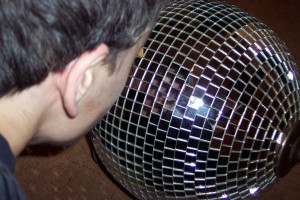

I remember the public library near my home where I grew up – in a suburb twenty miles east of Los Angeles. I felt comfortable there, surrounded by books and like-minded people. I loved to go there, whether it was to find a cozy novel or to do research for a report or essay (definitely pre-Internet). When I was fourteen, my parents would drop me off with instructions to be standing out front for pick-up in an hour, which always went by too fast.
I still love libraries, especially small ones like the one I grew up with and the one in the small southern Oregon town in which I currently reside. Once every two weeks, Nigel and I walk the third-of-a-mile distance from our home to the library. I read magazines while he peruses the juvenile shelves for his favorite book series, Eyewitness, covering topics as varied as the Civil War, Ancient Greece, pirates, knights, and everything in between. After a half an hour, he has made his selections, and we check them out via the self-checkout (which he loves), and then we walk home. Often, since it is a small library, we need to request certain books through the inter-library loan service, and that is what Nigel did last week for the book The Neverending Story. And they called today to let us know that it had arrived.
I was busy working, trying to meet a deadline, and of course Nigel had to get his book right then. I thought for a second. He is fourteen, he can communicate, and he wants to be independent. He can do this, I thought. I took a deep breath and the words came out as I exhaled: “Would you like to walk to the library to get it yourself?”
“I can go,” he said, some excitement in his voice. “I know how to get there. I can get the book myself.” He quickly went to put on his shoes and jacket, as if worried that I would change my mind. “I’ll watch for cars,” he added.
I opened the front door for him as he left. “Be careful,” I said. “And come right back after you get the book.” I checked the clock and allotted enough time for him to walk there and back, added a few extra minutes for distraction, and noted what time I should start to worry if he wasn’t back yet. Ha! Start to worry. Like I wasn’t going to worry the entire time he was gone.
A minute after he left, some idiot on a scooter sped down our 25-mile-per-hour residential street, and I worried about Nigel reacting to the sound, or worse, not getting out of the way fast enough. I worried about him crossing the busier street that the library is on, I worried about someone luring him into their house. I worried about him darting away from bees and other flying insects, I worried about him leaving his library card at the library and having to go back for it (which has happened before, even when I was with him).
But these are the baby steps we must take. I would love for my son to at least have a semi-independent life, and I must start fostering that. I must let go a little. I have to trust. I’ve laid the groundwork, and now it’s time for him to test his wings a little. And it’s time for me to let him. I just hope that the idiot on the scooter is long gone when Nigel makes his way back to the nest.
It was silly of me to think that I could focus on my work while Nigel was gone. He has gone out on his own before, for bike rides around the neighborhood or to go to a friend’s house, and I worried those times, too. I don’t suppose it will get any easier, especially as he gets older and wants to do even more things independently. And I know that this is something all parents go through to a degree, especially since I have a younger, non-autistic child and go through it with him. But it is different – they are different. They have coping tools and social skills to see them through many situations that Nigel does not, making him far more vulnerable. But I can’t deprive him of the satisfaction of walking to the library himself to check out a book if he is able to. And I believe that he is.
Right on time, actually early, he walks through the door, book in hand and library card in pocket. “Everything go okay?” I ask. “Fine,” he says, and shows me the book. It’s probably the same exchange that took place with my parents when they picked me up at the library all those years ago. And it feels just as good, all these years later.






